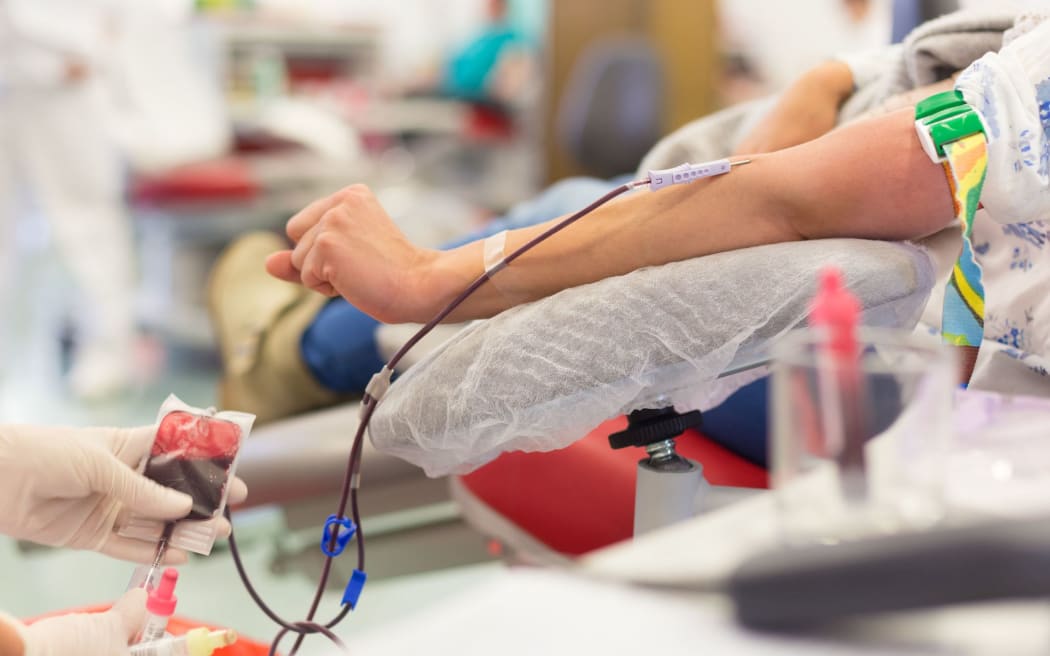As our blood service lifts a restriction that could see an influx of thousands of new donors, it's being urged to have a look at another aspect of its rules that would change things for the gay community.

Photo: 123RF
The New Zealand Blood Service has made changes that could bring another 10,000 donors to its doors, but it's stopping short of lifting another ban that would potentially bring many more.
People deemed possibly exposed to 'mad cow disease' - or vCJD - will be able to donate from later this year, but a contentious ban remains around men who have sex with men.
Today's episode of The Detail looks at both these issues, and a new study that recommends changes.
'Unfair, discriminatory and pretty outdated'
Today marks the release of SPOTS (Sex and Prevention of Transmission Study), a new report by the University of Auckland and other organisations.
Co-author Associate Professor Peter Saxton tells The Detail it's the largest ever survey of gay and bisexual men in New Zealand.
"Over 3200 took part in this particular report and they told us really frank things about their safe-sex behaviours, but also their relationship to blood donation."
Saxton explains the current blood donation rules cut out a lot of gay men, because they have to remain abstinent for three months if they want to donate.
"Many gay and bisexual men are really interested in donating blood, they feel that the current policy is unfair, it's discriminatory and pretty outdated.
"Under the current policy, only 13 per cent or 1 in 8 gay men can donate. But then we looked at other policies overseas - particularly the UK and Canada, they've got slightly different policies - they changed in 2021 and 2022 - they're more liberal."
In 2021, the UK changed its rules so everyone who goes to donate blood (not just men who have sex with men) is asked if they've had anal intercourse with more than one partner or with a new partner in the past three months. If they have, they can't donate.
Canada's policy is very similar, but has fewer restrictions than the UK.
"If we compared the behavioural responses that our participants gave us with those policies - if we were to adopt the UK policy for example - 37 per cent of Kiwis who are gay and bisexual could donate," Saxton says.
"I think it's time that New Zealand made its blood donation policy more inclusive. Importantly we can do that and we can do it safely. We urge the Blood Service, and they're a partner in this research, to act swiftly on these results. We know that they want to, they are obviously precautionary and want to make sure that doing so will be safe."
The "mad cow" epidemic
The Detail also talks to Professor Dave Hayman, an infectious disease ecologist at Massey University, about the risk of mad-cow disease and its impact on blood donations.
He co-wrote a piece in the New Zealand Medical Journal about the risk of the human disease from mad-cow, variant Creutzfeldt-Jakob disease (vCJD), being transmitted through blood transfusions.
"It causes a very unpleasant, always fatal degenerative brain disease in people. Actually about 10 years after the epidemic in cattle, there was a peak of cases of vCJD in people that probably came because people were eating infected beef from when there was the epidemic in beef."
Hayward says there have only ever been three cases linked to blood transfusions and there are currently no known cases in the world - plus he's found the risk in New Zealand would be about one in a billion.
"We don't think there's a reliable risk - we can't say there's none."
He says New Zealand lost about 10 per cent of its donors after it put this restriction in and believes there could be up to 10,000 more donors when it goes.
"It won't necessarily fill their gap, but it will help, and I know about this time last year .... the New Zealand Blood Service urgently needed blood."
The Detail asked to speak to the New Zealand Blood Service for this episode, but our request was declined.
Check out how to listen to and follow The Detail here.
You can also stay up-to-date by liking us on Facebook or following us on Twitter.

Photo: RNZ


